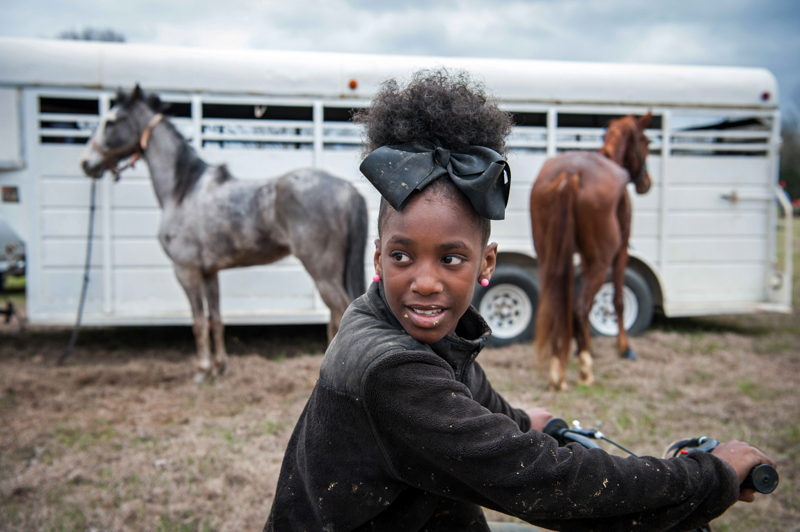Doyle is a 2019 Mississippi Visual Artist Fellow through the Mississippi Arts Commission and National Endowment for the Arts for his ongoing project on African American cowboys and cowgirls, “Delta Hill Riders.” Doyle won the 16th Annual Smithsonian Photo Contest with the project, which was announced in April 2019. Later that month, Doyle was awarded the Southern Prize from South Arts organization. The work was featured in the Half King Photo Series in New York and The Print Space Gallery in London before opening as a full exhibit at the Delta Arts Alliance in February 2019. He was also recognized for the project by winning the 2019 Zeiss Photography Award, and the photojournalism category at the 2018 Eye Em Awards in Berlin, Germany.



Delta Hill Riders
A recent article in Smithsonian estimated that just after the Civil War, one in four cowboys were African American. Yet this population was drastically underrepresented in popular accounts. And it is still. The “cowboy” identity retains a strong presence in many contemporary black communities.
This ongoing documentary project in the rural Mississippi Delta, “Delta Hill Riders,” sheds light on an overlooked black subculture — one that resists both historical and contemporary stereotypes.
The project began in January 2017 when I attended a black heritage rodeo in Greenville, Mississippi.
The body of work reveals how deep and diverse this community is. I’ve been invited to black heritage rodeos, horse shows, trail rides, “Cowboy Night” at black nightclubs, and subjects’ homes across the Delta.
On a personal level, I’ve been welcomed by these folks in a way I could not have imagined. And because of that, it’s been the most engaging project I’ve worked on. It’s a story that’s particularly timely with the current political environment, and one that provides a renewed focus on rural America.
Delta Hill Riders is a counter-narrative to the often negative portrayal of African Americans. Instead, I have captured a group of riders showing love for their horses and fellow cowboys, while also passing down traditions and historical perspectives among generations.
Ultimately, the project aims to press against my own old archetypes — who could and could not be a cowboy, and what it means to be black in Mississippi — while uplifting the voices of my subjects.













To view more of Rory Doyle’s work please visit his website.